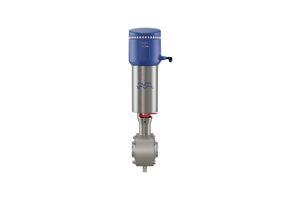The food industry is navigating a complex landscape of regulatory compliance and legal issues in 2024, driven by new requirements for food traceability recordkeeping, major food allergen enforcement, Prop 65 labeling amendments, and a growing patchwork of state bans on synthetic chemicals in food packaging. These developments coincide with the implementation of the FDA’s new Unified Human Foods Program, signaling significant shifts in regulatory oversight.
Food Traceability Recordkeeping Requirements
Food companies are working to meet the compliance timeline for the FDA’s Food Traceability final rule, which mandates that entities manufacturing, processing, packing, or holding foods on the FDA’s Food Traceability List (FTL) adhere to new recordkeeping requirements by January 20, 2026. This rule, part of Section 204(d) of the Food Safety Modernization Act (FSMA), requires maintaining specific "key data elements" (KDEs) associated with "critical tracking events" (CTEs) throughout the food supply chain.
Under the new rule, traceability lot codes must be assigned, recorded, shared, and linked to other information to identify foods as they move through the supply chain. This level of traceability, often down to the individual product level, is seen as a costly and burdensome compliance exercise. Cindy Kruger, chief counsel of Food Safety & Regulatory at PepsiCo, highlighted that the FDA's push for electronic traceability solutions poses a significant challenge due to existing gaps in the supply chain.
A U.S. Government Accountability Office (GAO) report illustrated the practical difficulties, noting that distributors may need to track lot codes at the case level, requiring additional staffing and technology investments. The FDA continues to issue guidance to assist with compliance, including traceability plan examples and FAQs available on its website.
Food Allergen Enforcement
The FDA’s focus on labeling and preventing cross-contact of major food allergens will remain a priority in 2024. The Food Allergy Safety, Treatment, Education, and Research Act, effective January 1, 2023, added sesame as the ninth major food allergen. Under the Food Allergen Labeling and Consumer Protection Act, manufacturers must declare major food allergens on labels. However, preventing cross-contact with sesame in production facilities presents challenges.
In response, the FDA issued draft compliance policy guidance in May 2023, outlining its enforcement policy for allergen labeling and preventive controls for cross-contact. The guidance mandates that food facilities implement a food safety plan that includes hazard analysis and preventive controls to ensure food is not adulterated or misbranded. Kruger described the guidance as "revolutionary," likening the new allergen control expectations to pathogen control protocols.
State Bans on PFAS
With federal inaction, state laws banning synthetic chemicals in food packaging are proliferating. States like New York, California, Colorado, Hawaii, Maryland, Rhode Island, Vermont, Maine, Washington, and Minnesota have enacted PFAS bans. Companies must navigate varying compliance timelines and requirements, including certification mandates in some states.
For example, Colorado, Maryland, Rhode Island, and Minnesota's PFAS bans took effect this year, while Maine's will begin on January 1, 2025. New York, California, Hawaii, and Vermont’s bans are already in force. Washington’s law features a tiered implementation schedule based on packaging type. Companies are advised to stay vigilant of new state laws and their specific compliance requirements.
Prop 65 Short-Form Labeling Requirements
In October 2023, California's Office of Environmental Health Hazard Assessment (OEHHA) proposed amendments to Prop 65, introducing significant compliance and cost burdens. Currently, Prop 65 requires clear and reasonable warnings about exposures to harmful chemicals. The proposed changes mandate that short-form warnings identify at least one Prop 65-listed chemical in consumer products.
The public comment period, which ended January 1, drew substantial industry opposition. Commenters argued that the amendments would disrupt business operations and impose excessive costs, particularly for manufacturers with numerous product SKUs. The OEHHA’s compliance cost estimate of $4,273 per business was widely criticized as unrealistic.
FDA’s Unified Human Foods Program
These regulatory developments coincide with the FDA’s anticipated launch of its Unified Human Foods Program (HFP). Announced in December 2023, the HFP will consolidate the Center for Food Safety and Applied Nutrition, the Office of Food Policy and Response, and certain Office of Regulatory Affairs (ORA) functions under a new deputy commissioner.
The ORA will be renamed the Office of Inspections and Investigations (OII), overseeing field-based inspections, investigations, and import operations. The FDA asserts that this reorganization will enhance its ability to oversee and protect the human food supply. The agency aims for implementation within the year.
As the food industry adapts to these stringent regulatory changes, companies must stay informed and proactive in ensuring compliance to navigate the evolving landscape effectively.













